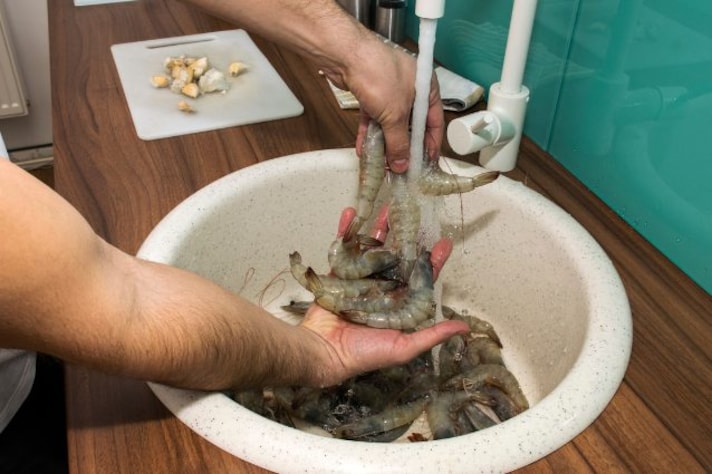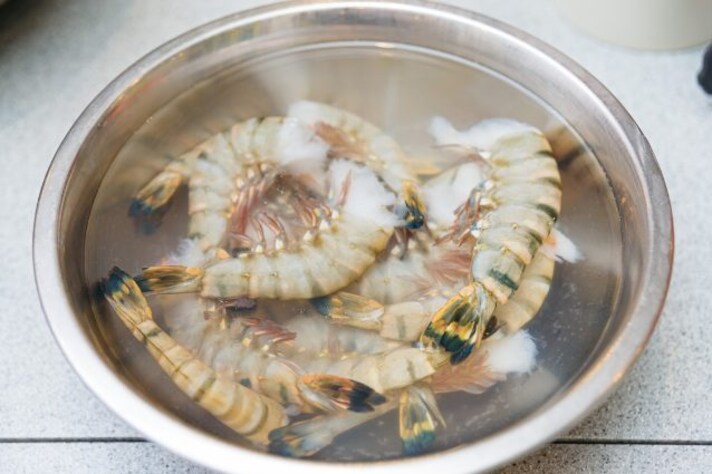
The question of whether to rinse shrimp before cooking is a frequent topic of discussion among home cooks and professional chefs alike. Some argue that rinsing shrimp is essential for cleanliness and flavor, while others believe it can wash away valuable nutrients and texture. Read ahead as we delve into the reasons behind rinsing shrimp, examines expert opinions, and offers practical advice on how to handle and prepare shrimp for cooking.
Here’s Why Some People Rinse Shrimp
Rinsing shrimp can help remove impurities such as dirt, sand, and residual chemicals from the processing plants. This is especially important for shrimp that are not pre-cleaned or deveined. Washing shrimp under cold water can ensure they are clean and free of any unwanted particles that might affect the taste and texture of the dish.
Fresh shrimp should have a mild, ocean-like scent. However, sometimes shrimp can have a stronger, fishy odor. Rinsing shrimp can help reduce this odor, making them more pleasant to cook and eat. A quick rinse can help remove any surface bacteria that might contribute to an off-putting smell.

Why Some People Believe Rinsing Shrimp is an Unnecessary Hassle
Some experts argue that rinsing shrimp can wash away valuable nutrients and flavor. Shrimp naturally contain a certain amount of moisture and brine, which can enhance their taste. Rinsing them might dilute these natural flavors, leading to a less flavorful dish.
Rinsing shrimp can also affect their texture. The additional moisture from rinsing can make it difficult to achieve a crisp or seared finish when cooking. This is particularly important for dishes like shrimp scampi or grilled shrimp, where a good sear is essential for flavor and texture.

What the Experts Think
Many culinary experts recommend not rinsing shrimp, particularly if they are high-quality, fresh, and pre-cleaned. They argue that the natural brine in shrimp enhances their flavor and helps with the cooking process. However, they also acknowledge that rinsing might be necessary for lower-quality or less fresh shrimp to remove impurities.
On the other hand, food safety authorities generally advise rinsing shrimp to remove potential contaminants, especially if the shrimp are not pre-cleaned or deveined. Rinsing can help ensure that any bacteria or surface contaminants are washed away before cooking, reducing the risk of foodborne illnesses.
;Resize,width=767;)
